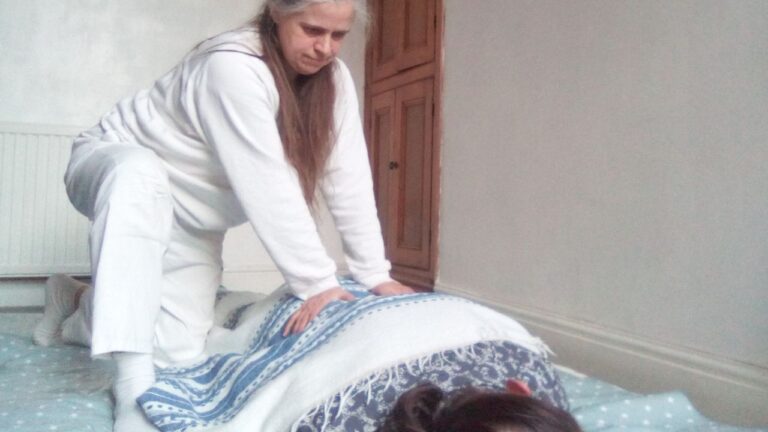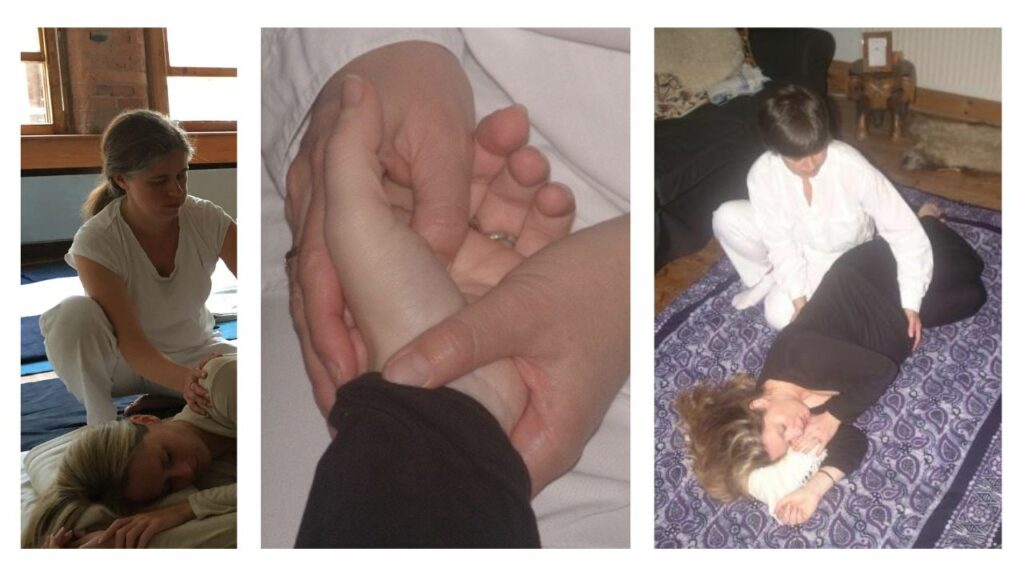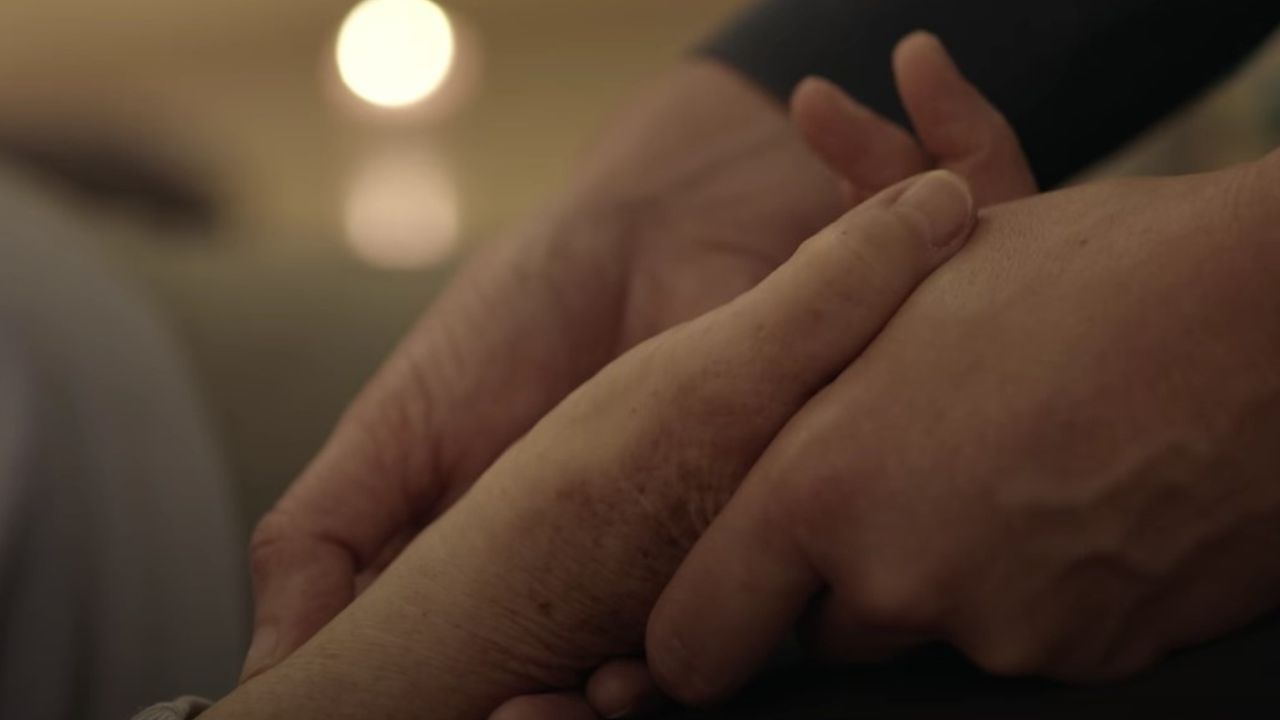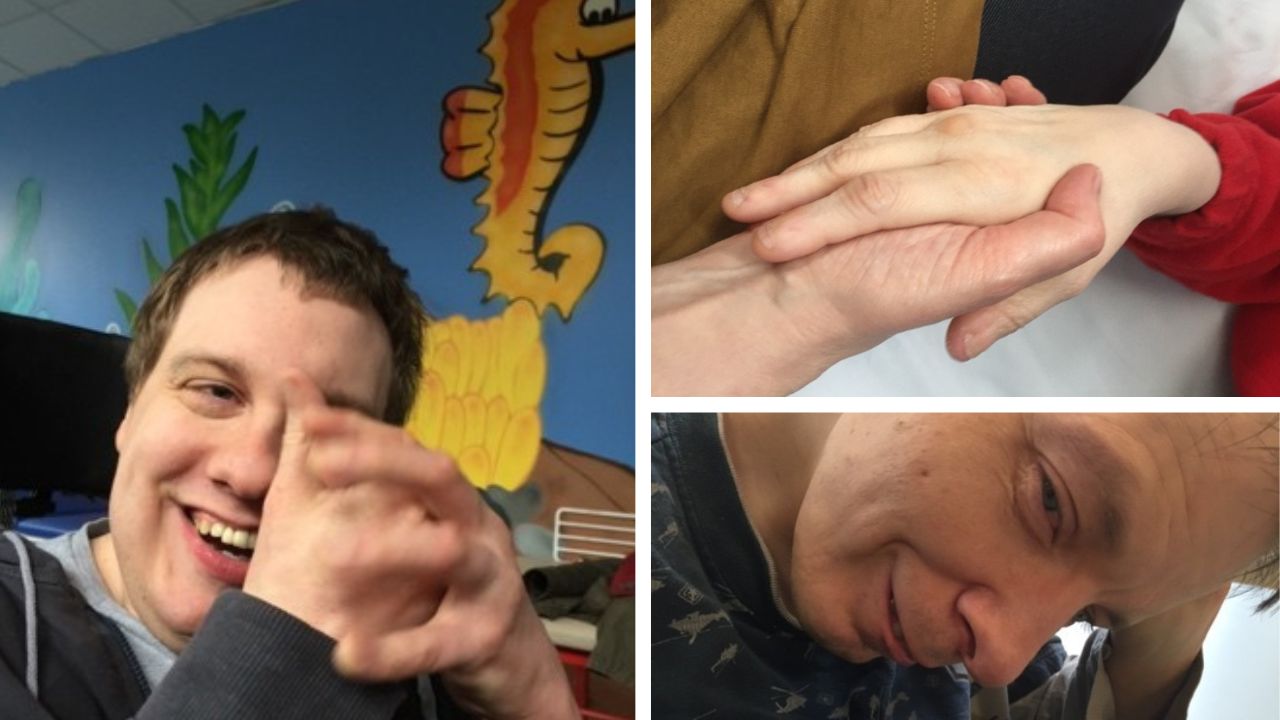
I have been working as a shiatsu practitioner since 1997, and during that time, many psychotherapists and counsellors have come to see me for Shiatsu. It may be that they have been attracted by my background in psychotherapy research, or that knowledge of my Shiatsu practice has spread by word of mouth. Many of these people have become long-term clients.
In the Spotlight

Hannah Mackay
Hannah has been practicing shiatsu since 1997, and has a thriving private Shiatsu practice. She is co-leader of Shiatsu College Manchester, and also teaches Shiatsu graduates and practitioners. Originally trained with the British School of Shiatsu-Do, she has completed postgraduate training with the Shiatsu College and with Suzanne Yates at Wellmother.
She has a PhD in Psychology (Psychotherapy Research) from the University of Leeds and worked with Professor Andrew Long as a researcher on the ESF Shiatsu research project at the University of Salford. She has also worked on a number of academic psychotherapy research projects.
Hannah has explored the connections between healing practice and movement practice through 5 Rhythms for many years, and completed an Apprenticeship in Movement Medicine in 2022. She is interested in a wide range of creative expression, including poetry, dance, movement and craft. She enjoys developing her Shiatsu practice, and sharing her knowledge through writing and workshops.
Foreword
Shiatsu is beneficial for counsellors and psychotherapists in many ways:
Creating a further layer of care: therapists take care of others, hear their stories and support them in their difficulties. Receiving Shiatsu creates more balance in the giving and receiving of support.
Physical support: like people in other sedentary professions, counsellors and psychotherapists may develop physical issues during their working life. We can help them to notice postural problems, stretch out bodies that have spent a long time sitting and offer exercises to re-energise during breaks between clients.
Helping with vicarious trauma: therapists who have been working with very troubled clients, or those who have experienced trauma, may carry vicarious trauma. Listening to, empathising with and supporting those who have experienced trauma may leave an imprint in the therapist’s physical and emotional system. Shiatsu can help to rebalance and calm the nervous system and identify where an energetic pattern might stem from another person. It can help to cultivate an embodied sense of safety and through Shiatsu we can model staying energetically centered when with another person.
Developing an understanding of embodiment: there is a trend towards focusing on the body in psychotherapy and counselling circles. We can bring our considerable expertise to bear here.
Personal development and personal support: those who choose a career as a therapist are likely to be well-served by individual support and may appreciate our focus on personal transformation.


Client Vignettes
In order to preserve confidentiality, these stories do not describe real clients…
Counsellor 1
Sue works as a therapist in the public health service with clients who have experienced trauma. She has physical symptoms associated with stress, including insomnia, anxiety and neck pain. Sue has found Shiatsu useful in helping her feel her own body more strongly, which keeps her anchored when working with traumatised or dissociating clients. In early treatments, she realised that she was not very aware of her body. Working together, we have noticed how Sue’s posture affects her neck pain as she leans forwards to talk to clients who are distressed. Bringing her neck back into alignment helps her to be more centered and Shiatsu treatments have focused on creating a sense of relaxation in the neck. This is associated with improved sleep and reduced anxiety.
Sue is following her interest in Shiatsu by taking a Qigong class and using energy exercises to come back to herself between clients.
Counsellor 2
Jane works as a counsellor in private practice. She has always been a sensitive and empathic person, and this is a quality that she draws on very successfully in her client work. She is aware that this sensitivity also makes her feel criticism very deeply and she found this difficult during her training. She comes for Shiatsu for ongoing support. Having Shiatsu helps her feel calmer and more able to support her clients. We often work with her Earth element to balance her experience of caring/being cared for, and her Heart Protector to help her to feel a warm connection that complements her sensitivity.
She likes the fact that Shiatsu works through the body and that she doesn’t fully understand the process. She says that this helps her relax and let go during treatments. This provides an aspect of support that she doesn’t receive through supervision or being in therapy. Her sensitivity and responsiveness to energy work mean that she receives many benefits from Shiatsu treatments.
Shiatsu can help to rebalance and calm the nervous system… and cultivate an embodied sense of safety. Through Shiatsu we can model staying energetically centered when with another person.
Hannah Mackay


